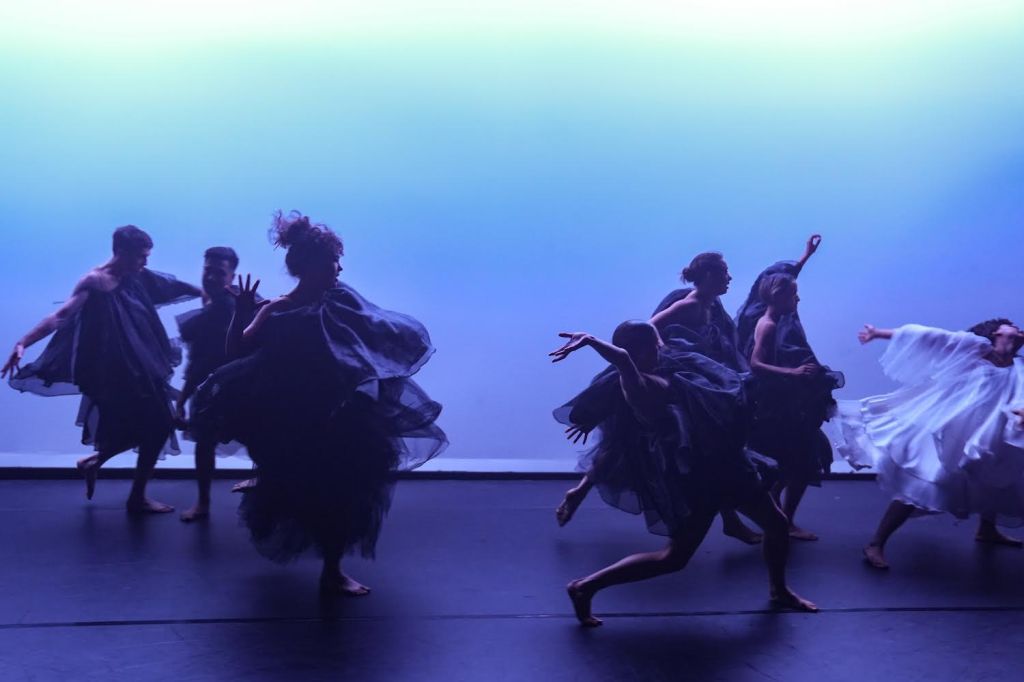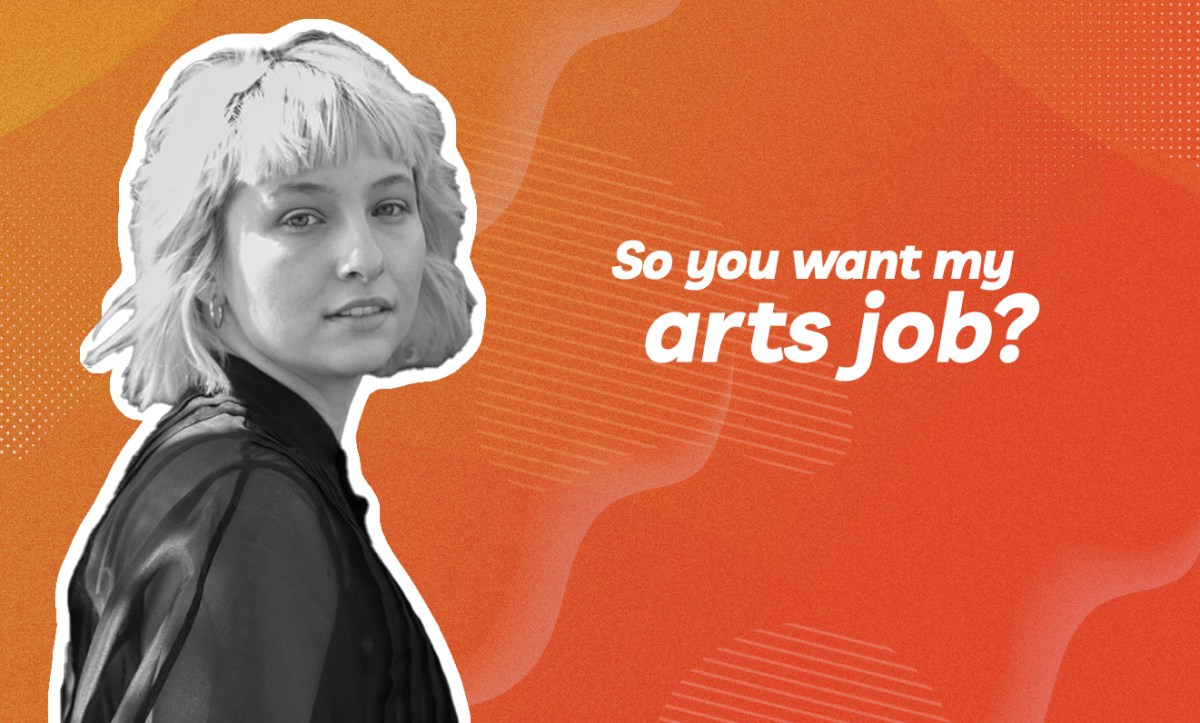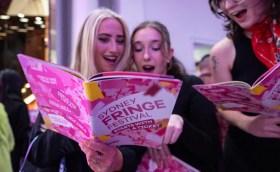Eliza Cooper is a performer, director and multidisciplinary artist who pursued her passion in dance since early childhood. Growing up in Canada Bay on the land of the Wangal Peoples, Cooper graduated from Newtown High School of the Performing Arts (2015), Sydney Dance Company’s Pre-Professional Year (2016) and Kibbutz Contemporary Dance Company’s MASA Program (2017) and holds an Advanced Diploma in Dance.
Currently working as a freelance dancer and choreographer, Cooper has performed with leading companies including Dance Makers Collective, Opera Australia, Catapult Dance Company and Compañía Pepa Molina.
Coming from a family of musicians and artists, Cooper was born with a passion towards the arts that is deeply collaborative, extending her dance practice through directing and choreography.
She has worked together with fellow choreographers and performance artists including Nick Cave, Justene Williams, Offerings (Missy Gilbert) and Mitchell Christie.
Most recently, Cooper’s second full-length work celebrating the dark, theatrical world of bats, Bat Lake premiered at Riverside Theatres Parramatta as part of FORM Dance Projects’ ‘Dance Bites’ series. At times a maker at heart, Cooper made the costumes for this original dance work, featuring composition by Mason Peronchik.
When placed in the role of directing and choreographing, Cooper explained her process as ‘very cognitive’ and stressed the importance of good communication to share her vision with the team.
Cooper spoke of the energy that propels her forward in an art form that she sees as ‘the ultimate mind and body challenge’.
How would you describe what you do?
I would describe it as a mixture of many things! I am first and foremost a dance-maker which encompasses performance, choreography, direction, production and costume design. I would describe my work as an exploration of shared human and animal experiences. My key interests are ancestral movement, animal movement, embodiment practices, character play and improvised performance. I like to explore the both exceptionality and mundanity of life on Earth.
How did you get started in your career?
I started as a small child! Definitely! I come from a family of creatives and artists. My mother and grandmother are both pianists and piano teachers by trade. My great-aunt was the prolific English ceramist Susie Cooper OBE and my uncle, Martyn Thompson, is a leading multidisciplinary artist, designer and photographer.
I was always interested in choreography, I don’t really remember the beginning. In my childhood, I painted everyday and dressed up as Peter Pan, cowboys, fairies and mermaids. My parents exposed me constantly to public arts – I remember seeing The Lost Kings, a fantastic outdoor circus and aerial work in the Sydney Festival. It was mesmerising and transported me to another planet. I remember my grandfather gave us tickets to see Bangarra Dance Theatre once, that is another vivid memory. When I was nine, my father and I co-exhibited at our local cafe-gallery, Angela Jane’s Coffee Food Art, and sold about 15 paintings. We love collaborating; he is co-production designer on my upcoming work Bat Lake!
I received a bursary to study at The McDonald College in upper primary school, then I attended Newtown High School of the Performing Arts, graduating in 2015. These opportunities really transformed my practice, I was blessed with fantastic teachers. In 2016, I undertook Sydney Dance Company’s Pre-Professional Year program and in 2017, Kibbutz Contemporary Dance Company’s MASA Program. During these intensive periods, I learnt mountains about professional dance making. I didn’t realise how diverse dance-making practices were until I did my full-time studies. I was exposed to hundreds of artists, each with their own way of working.
Read: From emerging to mid-career: Advice from artists
What’s an average day or week like?
There is no average week it seems, I work with different people on different projects every month!
Some weeks I am dancing. During these periods I like to focus constantly on my body. Movement, in a dance context, is specific and complex, so it takes a lot of mental concentration. To give my mind a break, I love running, swimming and practising yoga. I find these forms relaxing due to their repetitive natures.
Some weeks I am directing and choreographing. During these times, I feel surprisingly removed from my body. My approach to choreography is very cognitive, I am usually sitting still, picturing things. When I’m working with performers in the studio, it’s my job to be a good communicator. I find ways of explaining what I envision, sometimes physically but also through drawings, videos, music and words.
I try to create a playful atmosphere in the room that fosters collaboration. We are constantly laughing, trying things out, testing the waters. Good directors are responsive to their collaborators, so I try to be sensitive to how my collaborators’ minds and bodies are feeling each day. During these periods, I am usually researching my subject matter intensively, in the case of Bat Lake – bats!

Some weeks I am designing and making costumes and props for my works. I am often sewing, sourcing fabrics or second-hand garments, building, fitting or sculpting! I’ve always loved to use my hands, I feel most at home in this part of the process, it reminds me of my childhood.
What’s the most common misconception about being a dancer/choreographer?
I am a freelance dancer and choreographer, so I spend most of my time behind my computer applying for grants, residencies and employment opportunities! It’s never ending!
There is nothing better than the feeling when I have booked a long-term project, or series or short projects that line up. It’s a huge relief and privilege to be able to work on my craft intensively, so I work my hardest to attain such opportunities.
I think a common misconception about dance is that it is less intellectual or complex than other art forms or academic pursuits. This idea has perplexed me my whole life, because dance is by far the hardest thing I’d ever done in my life. It involves everything, it is the ultimate mind and body challenge.
Read: Street dance: from community to the stage
If you were interviewing someone for your role, what skills and qualities would you look for?
Adaptability, open-mindedness, perseverance, imagination, entrepreneurship, discipline, passion and most of all, GRIT! It is a tough journey, with lots of rejection and disappointment. You have to propel yourself forward, there is a mountain of work to do so it is a full-time commitment.
The skills you need are very dependent on the nature of your practice. As a performer, I think improvisation is the most important skill. Improvisation is used constantly in creative processes and saves you on stage when things don’t go to plan. I love improvised performance, it is exhilarating.
As a director, problem-solving has to be the main skill. You have to think hard about how you can turn your vision into a reality. Where do I start? Who are the people? How do we make this thing?
What’s the best thing happening in your field at the moment?
Interdisciplinary practice! I have seen amazing interdisciplinary performances where forms are blended so seamlessly, I felt a full bodied experience which excited all my senses.
I loved Raghav Handa’s work Two with tabla player Maharshi Raval. There was a fantastic mix of wit, humour and virtuosity, fantastic dancing, acting and music. It was very playful and spirited, an uplifting work that was very engaging.
I loved Solomon Thomas’ work The Sucker, an experimental work which blended prosthetics, puppetry, music and text. It was so bizarre and wonderful, really offering the unexpected and unconventional.
I love interdisciplinary artists who are all encompassing in their vision – full-bodied artists – like David Lynch, Bjork, Kazuo Ohno and Grace Jones – these are my heroes.






